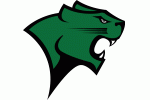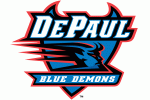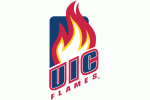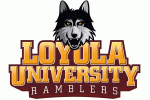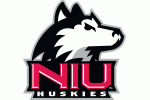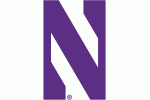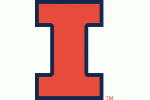Javier Baez brings hope -- and urgency
Javier Baez was my eighth-ranked prospect in the minors before his call-up, a move precipitated by a nearly two-month run of improved results for the talented shortstop -- .309/.376/.619 since ending a five-game hitless streak June 15, with higher walk and contact rates than he showed in April and May. Baez has initially struggled with every promotion in his pro career so far, but also makes adjustments after a fallow period at each new level, so promoting him to the majors now might allow him to be more productive next year if the pattern holds and he scuffles out of the chute in Chicago.
Baez has enormous power, the kind you get from having lightning-quick wrists and strong forearms, which he's shown major league audiences in flashes such as this year's Futures Game (where he hit an opposite-field homer off Lucas Giolito) and in spring training stints with the Cubs. He's a natural shortstop but may end up moving to second or third base, with the arm for the latter and enough quickness for the former. He had another full season before he had to go on the 40-man roster to protect him from the Rule 5 draft, but the Cubs chose to bring him up now -- in the hopes it'll better prepare him for next year -- rather than wait until next April, which might have pushed off free agency by a year.
With the first of the Cubs' quartet of elite hitting prospects arriving, and two more not far behind, the urgency for the front office to acquire starting pitching just increased significantly.
Baez's promotion means more, however, than merely the infusion of talent. It brings us closer to Cubs Judgment Day, when all of these prospects reach Wrigley Field and the front office has to find places for them to play in a sort of peculiar game of prospect musical chairs. The obvious solution is to trade one or more of them for pitching, but I can see Jed Hoyer et al disliking the idea of trading any of these potential superstars, especially Baez, Kris Bryant or Addison Russell. Starlin Castro's bounce-back this year to the level he showed in 2012 at age 22 should restore some trade value, and with a team-friendly contract ($41 million guaranteed through 2019) and passable defense at shortstop, there ought to be a number of teams interested in obtaining him for pitching, the Mets foremost among them.
If Castro goes, the Cubs still have more prospects than open positions at the major league level, assuming Anthony Rizzo is locked in at first base (as he should be; if we can't have the Joey Votto we want, Rizzo may very well be the Joey Votto we need). Baez, Russell and Arismendy Alcantara all can play short. Bryant plays third, but Baez could play there, too, while both Baez and Alcantara also could handle second. If Bryant moves off third, the longtime assumption has been that he would move to right field, but that's Jorge Soler's ideal position ... and if Soler moves to left, he might block Billy McKinney, the "other" guy in the Jeff Samardzija trade, who's hitting .310/.400/.460 in 105 plate appearances since the deal; or Kyle Schwarber, the Cubs' first pick this year, if Schwarber doesn't work out behind the plate. Alcantara has played some center since reaching the majors, but that's Albert Almora's best position, although Almora has struggled at the plate all season.
Soler might be the next call-up, because he's the only one of all of the remaining prospects I mentioned here who's already on the 40-man roster, the result of the major league deal he signed in the spring of 2012. (Although the Cubs have used three of Soler's options, he'll qualify for a fourth option next year because he has fewer than five full seasons in pro ball.) Soler's issue isn't lack of ability, but lack of reps: In more than 24 months since his pro debut, he's had fewer than 600 regular-season plate appearances, and has just 118 above A-ball. If he continues torching Triple-A, however, I'd call him up when Iowa's season ends in early September. Bryant may be more advanced right now, but he's not on the 40-man, and adding him prematurely and giving him major league time creates some added risks should he get hurt this September or in spring training next year.
With the first of the Cubs' quartet of elite hitting prospects arriving, and two more not far behind, the urgency for the front office to acquire starting pitching just increased significantly.
The possible 2015 rotation right now is comprised of Jake Arrieta, Travis Wood, Edwin Jackson and some fifth-starter types -- not enough to boost the team into contention -- and their best starting pitching prospects likely won't be ready for at least two more years. They may have more luck acquiring pitching for Castro or Alcantara than for prospects, given the trend during this year's trade deadline buildup, in which we saw major leaguers moved rather than minor leaguers in the bulk of the biggest deals.
That same urgency, combined with a lack of major financial commitments on the current roster, should lead the Cubs to be more aggressive in free agency, too. Most of the best starters on the market this winter -- and there aren't many premium ones available -- will receive a qualifying offer, so signing them as free agents would mean the loss of a pick, which for the Cubs would mean their second-rounder, a small disincentive at most. There is one premium pitcher heading for the market who can't receive a qualifying offer, however, and the Cubs' brass are already very familiar with him: Jon Lester.
Adding Lester to their rotation could net the Cubs four to five extra wins over what they would have in-house for that rotation spot, a little less relative to 2013 because some of those starts went to Jason Hammel. It's one option of several, but makes a lot of sense given the front office's connections to Lester and its desire to retain as many draft picks as it can.
http://insider.espn.go.com/blog/keith-law/post?id=2699



